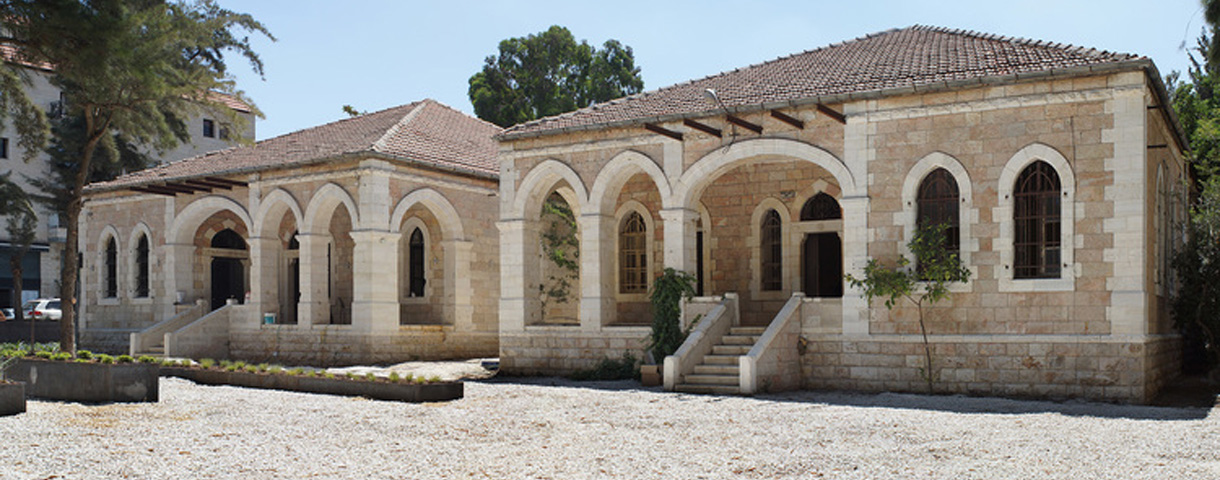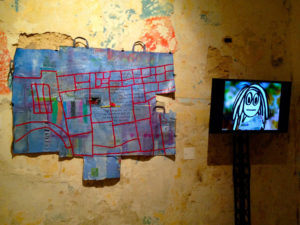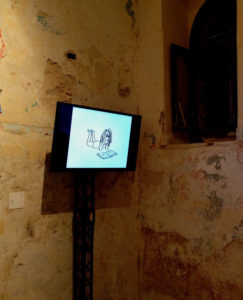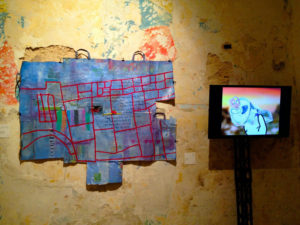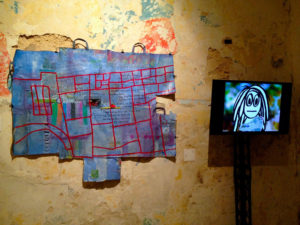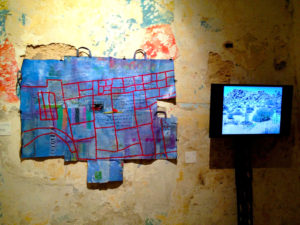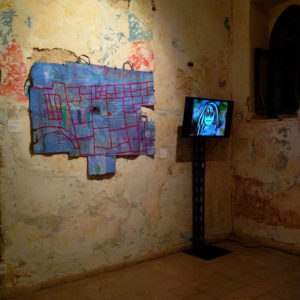Jerusalem Biennale
In September, 2015, Up to Now was featured as part of Jerusalem’s second Biennale in Israel at the 47 Amek Rafaim building. The show was part of the 7,567, Mi–> group show through an opportunity with the Jewish Artists Initiative (JAI) of Southern California, co-curated by Anne Hromadka and Georgia Freedman-Harvey. JAI was one of only two North American exhibitions to be chosen for the Biennale. The concept for our show was about the distance between Los Angeles to Jerusalem, which is is exactly 7,567 miles.
Displayed with the movie, which ran on a loop, was a collage piece made from Israeli ephemera on grocery bags gathered by tourists from Los Angeles while staying in Jerusalem. All of these items were found as trash, or received for no cost as part of another purchase (receipts, napkins, bags, food labels, wrappers, box tops, etc.) All items were accumulated organically through travel between Jerusalem and Tel Aviv. The first half of a poem entitled, “The Tourist” by Yehuda Amichai, is copied onto the artwork with a white crayon in both English and Hebrew under a red-painted contemporary folk-art depiction of the Wailing Wall.
Tourists
Visits of condolence is all we get from them.
They squat at the Holocaust Memorial,
They put on grave faces at the Wailing Wall
And they laugh behind the heavy curtains
In their hotels.
They have their pictures taken
Together with our famous dead
At Rachel’s Tomb and Herzl’s Tomb
And on the top of Ammunition Hill.
They weep over our sweet boys
And lust over our tough girls
And hang up their underwear
To dry quickly
In cool, blue bathrooms.
Once I sat on the steps by a gate at David’s Tower. I placed my two heavy baskets at my side. A group of tourists was standing around their guide and I became their target marker. “You see that man with the baskets? Just right of his head there’s an arch from the Roman period. Just right of his head.” “But he’s moving, he’s moving!” I said to myself: “redemption will come only if their guide tells them, ‘You see that arch from the Roman period? It’s not important: but next to it, left down and a bit, there sits a man who’s bought fruit and vegetables for his family.’”
-Yehuda Amichai (1924-2000)
